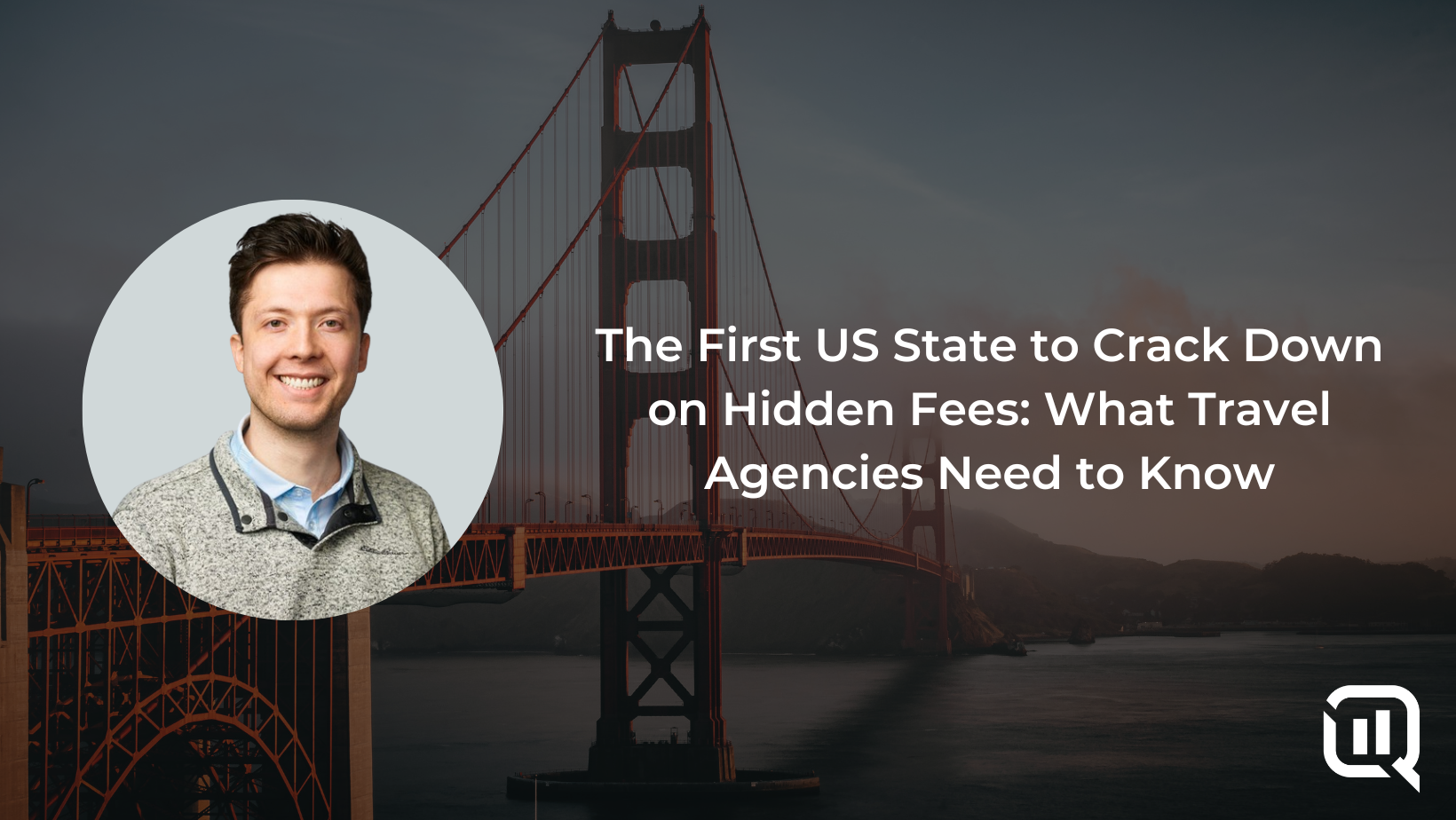Attention travel agencies, airlines and hotels! Those of you who have that have been operating a single pricing strategy for the United States have only days to deploy state specific pricing. A “one size fits all” approach will no longer cut it. Specifically, strategies that place additional fees further down the booking path. Is your booking funnel ready for mandatory upfront pricing? Do your travel packages surface a subtotal on the list page while saving compounding charges for the reservation page? ‘Hidden’ charges like resort fees, city tax, or an online booking fee? OTA websites that reserve line items to lure in customers with low prices absolutely need to read until the end. Stealth fees are taking a hike (in the Redwood National Park of course)! The state of California often leads the country in consumer protection laws. In this case introducing legislation to ban junk fees back in October, with the fee-killing bill taking effect July 1, 2024.
Per the GreenbergTrauig report, “California’s new “Hidden Fees Statute,” SB 478… will generally ban Californian consumers so-called “junk fees” by prohibiting “drip pricing,” which the legislation describes as “advertising a price that is less than the actual price that a consumer will have to pay for a good or service.”
This new regulation was drovien by a number of reasons: Disgruntled consumers that were taken advantage of by drip pricing. Calls for transparent pricing for adequate dining or travel budgeting. Or the California legislature was bombarded with this classic meme, and couldn’t bear it any longer.
Come July 1st, all national or international businesses selling to consumers in California will need to move any relevant fees to the product listing page, or risk the wrath of a golden state fine. As progressive as California purports to be, in this rule they are years behind many countries in Europe that have long since mandated that list page subtotals be eliminated. This lack of transparency isn’t lost on sophisticated international travel agencies, who have been playing a game of “subtotal chess” for years. Depending on the destination, website point of sale or even IP address, hotels can have wildly different prices displayed for different users. The screenshots below are examples of this.
Although we’re shopping these searches from the US point of sale, below are the prices of a hotel stay in London. Because of local regulations governing businesses operating in the UK, the total rate is advertised on the list page. Notice how that rate of $1,624 is static from list page to checkout?
If you were to book a hotel in New York City, absent a drip fee ban, the price a consumer sees on the list page is $661. That’s nearly $200 cheaper than the actual total rate which is stuffed with taxes, property and city fees.
As you can see, prices change drastically based on location of the property. Only the most innovative data vendors in the market today are able to provide pricing intelligence that is based on the users geo location; which is usage of regional proxy IP addresses to collect local rates from a website. There is enormous value in geo-based rates. It allows a travel agency to understand the prices that their potential customers are being offered in their home countries. For example, a travel agency can see the different rates a French customer gets on the French Agoda website compared to a German customer on the German Agoda site.
Country Geo-Shopping No Longer Enough
Up to this point, national geo searching has been sufficient. Now, OTAs, Airlines, Hotels and Cruise lines (among many others!) need to be able to differentiate shopping as a California resident from the rest of the United States in their pricing strategy. It is no longer one size fits all. Now, each OTA not only has the challenge of offering unique rates to California residents, but also needs an understanding of their competitor rates specifically in California to ensure they remain competitive. If national IP rate shopping is still a fledgling functionality, how can the need for state specific geo searching be met?
QL2 Software, a competitive intelligence company based out of Baltimore, has the problem solved. As soon as the legislation hit the table, we at QL2 began bolstering our geo-shopping services and enhancing our ability to crawl data as a consumer at the state level. One US geo pool will target states without drip fees (ensuring consistency in the prices searched over time – ensuring the price hikes and dips in your data are legitimate pricing changes), while another geo pool will allow geo-shopping as a resident of a specific state. The ability to distinguish on an individual search which IP should be used will enable US national OTAs and other travel brands to be compliant with state law without seeing an interruption in their service. But here’s the real kicker: QL2’s service goes beyond compliance. It also gives travel agencies a cutting-edge advantage – seeing competitor rates at the state level!
We know that California won’t be the last state to implement a law like this. Minnesota is preparing for a similar bill (HF3438) which becomes effective on January 1, 2025. In addition, Colorado and Oregon are just a few others home to lawmakers that are increasingly vocal about junk fee elimination. That’s why this state-based IP crawling is being future-proofed to be able to differentiate by specific state code. Before long, QL2 will be able to crawl the web and return data from all 50 states. This is a gleaming opportunity for pricing departments in national companies to bolster their state-specific pricing strategies.
QL2 will be ready for the California junk fee ban on July 1st, will you? Contact us today to discuss how we can help your business remain compliant with California law while also bolstering your national U.S pricing strategy.
Want to learn more about monitoring travel market prices? Contact Connor Schneider to start a conversation!




